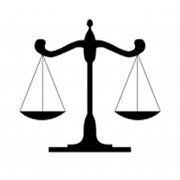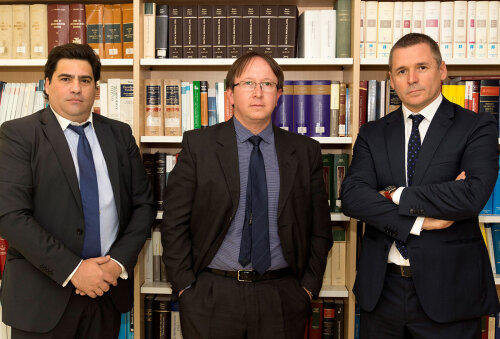Best Native People Lawyers in Huelva
Share your needs with us, get contacted by law firms.
Free. Takes 2 min.
List of the best lawyers in Huelva, Spain
About Native People Law in Huelva, Spain
The province of Huelva, located in Andalusia, Spain, has a distinctive history and rich cultural heritage involving its Native People. In Spain, the term "Native People" does not refer to Indigenous communities as in some other countries, but to long-standing local populations with unique cultural identities, such as the Andalusians, local Roma (gitano) communities, and historic groups with deep roots in the region. Unlike some countries, Spain does not have formally recognized Indigenous Peoples with separate legal protections or autonomous rights, but there are important cultural rights, local traditions, and protections surrounding minority and ethnic groups.
Legal frameworks relevant to Native People in Huelva generally relate to the protection of cultural heritage, anti-discrimination laws, language and traditions, land rights disputes, and access to social services. Spain's commitment to equality and non-discrimination for all ethnic and cultural groups is enshrined in its national and regional laws, including the Spanish Constitution and specific Andalusian statutes.
Why You May Need a Lawyer
There are several situations where individuals belonging to Native People or ethnic minorities in Huelva may require legal advice or representation. Common issues include:
- Facing discrimination in housing, employment, or public services
- Issues regarding the protection and promotion of cultural heritage and traditions
- Conflicts over land use, ownership, or access to traditional lands
- Legal disputes within the community or with governmental authorities
- Difficulties accessing education or social benefits due to bureaucratic barriers
- Criminal or civil cases where ethnic or cultural background might be a factor
- Seeking support for community-led initiatives or non-profit organizations
- Navigating the process of recognition for specific minority rights or cultural identities
- Challenges involving language rights and the use of minority languages in public administration
A lawyer with experience in these matters can help ensure your rights are protected and help resolve legal difficulties effectively.
Local Laws Overview
The legal protections and obligations for Native People and minority groups in Huelva are derived from several legal sources:
- The Spanish Constitution: Guarantees equality before the law, prohibits discrimination on the grounds of race, ethnicity, or religion, and protects cultural diversity.
- Andalusian Statute of Autonomy: Offers additional guarantees for cultural and linguistic rights at the regional level.
- Laws on Cultural Heritage: Protect traditional practices, monuments, and spaces important to local cultures and minority groups.
- Anti-Discrimination Legislation: National and EU laws prohibit discrimination and provide recourse for those who experience it.
- Social Services Laws: Ensure access to education, healthcare, and social assistance for all residents, with particular programs targeting at-risk groups such as the Roma community.
- Local Government Policies: Municipalities may have specific regulations or funding related to cultural events, heritage protection, or community development targeting Native People.
While there are no special autonomous rights for Native Peoples akin to those in some countries, existing laws serve to protect cultural expression and equality.
Frequently Asked Questions
Who are considered Native People in Huelva, Spain?
The term generally refers to traditional ethnic or cultural communities with long-standing roots in the region, such as the Andalusian people and the Roma community. Spain does not use the term to refer to Indigenous Peoples as some other nations do.
Are there any recognized Indigenous rights in Huelva?
No, Spain does not have a formal category for Indigenous rights as seen in some countries. However, there are general protections for cultural and ethnic diversity at the national and regional levels.
What legal protections exist for minority cultures in Huelva?
The Spanish Constitution and Andalusian Statute of Autonomy protect cultural expression, prohibit discrimination, and provide support for the preservation of heritage and traditions.
Can Native People own traditional lands or receive special land rights?
No special land rights are provided based on cultural or ethnic identity, but regular property laws apply. Disputes must be resolved through standard legal channels.
What can I do if I am a victim of discrimination?
Victims can file a complaint with the police, Ombudsman, or equality bodies. Consulting a lawyer can help ensure claims are properly addressed.
Are there local organizations that support Native People in Huelva?
Yes, several non-governmental organizations, local councils, and cultural associations provide support, advocacy, and legal counseling.
Can I receive public support for preserving cultural traditions?
Local and regional governments may offer grants or resources for cultural preservation projects. Consult municipal offices or cultural departments for details.
Are there legal supports for Romani (gitano) people in Huelva?
Yes, the Romani community benefits from targeted social programs, anti-discrimination protections, and advocacy from both governmental and non-profit organizations.
Is legal representation required for cultural or heritage disputes?
While not always required, legal advice is recommended for any dispute involving property, administrative matters, or cultural heritage protection.
How can I prove my membership in a Native People or minority group in legal situations?
Generally, formal proof is not necessary except for specific programs or grants. In cases where required, documentation from cultural associations or local authorities may be helpful.
Additional Resources
For those seeking more information or support, consider contacting the following organizations:
- Andalusian Ombudsman (Defensor del Pueblo Andaluz): For complaints about public services and discrimination.
- Consejería de Igualdad, Políticas Sociales y Conciliación (Andalusian Department of Equality): Offers programs for minority and cultural groups.
- Local municipal offices (Ayuntamientos): Can provide information on local policies and opportunities.
- Non-profit organizations such as Fundación Secretariado Gitano: Advocacy and support for the Roma community.
- Legal aid services (Asistencia Jurídica Gratuita) offered by the Bar Association of Huelva.
Next Steps
If you believe you need legal assistance involving matters connected to Native People or minority groups in Huelva, consider the following actions:
- Identify your specific legal issue and gather any relevant documents or evidence.
- Contact a qualified lawyer with experience in minority rights, cultural law, or anti-discrimination cases. The Bar Association of Huelva can provide referrals and information about legal aid eligibility.
- If your concern involves public administration or discrimination, consider also reaching out to the Andalusian Ombudsman or local equality bodies for guidance or mediation.
- Seek support from relevant cultural or community organizations for additional resources and advocacy.
- If facing an urgent issue, such as discrimination or a threat to cultural assets, do not delay seeking legal counsel or government intervention.
Legal challenges involving Native People and cultural matters can be complex. Promptly obtaining specialized legal advice ensures your rights and interests are protected in line with local and national laws.
Lawzana helps you find the best lawyers and law firms in Huelva through a curated and pre-screened list of qualified legal professionals. Our platform offers rankings and detailed profiles of attorneys and law firms, allowing you to compare based on practice areas, including Native People, experience, and client feedback.
Each profile includes a description of the firm's areas of practice, client reviews, team members and partners, year of establishment, spoken languages, office locations, contact information, social media presence, and any published articles or resources. Most firms on our platform speak English and are experienced in both local and international legal matters.
Get a quote from top-rated law firms in Huelva, Spain — quickly, securely, and without unnecessary hassle.
Disclaimer:
The information provided on this page is for general informational purposes only and does not constitute legal advice. While we strive to ensure the accuracy and relevance of the content, legal information may change over time, and interpretations of the law can vary. You should always consult with a qualified legal professional for advice specific to your situation.
We disclaim all liability for actions taken or not taken based on the content of this page. If you believe any information is incorrect or outdated, please contact us, and we will review and update it where appropriate.













